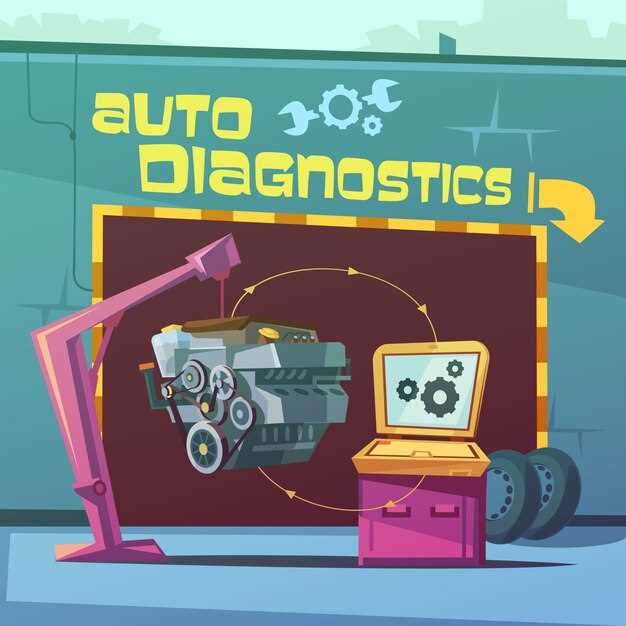
Dyno Tuning Explained – What to Expect
- George Harris
- 0
- Posted on

Dyno tuning is an essential process in the automotive industry that focuses on optimizing a vehicle’s performance through precise adjustments and calibrations. Utilizing a dynamometer, a device that measures force and power, enthusiasts and professionals gain valuable insights into how an engine operates under various conditions. This detailed analysis allows for tailored modifications that elevate a car’s performance capabilities, fundamentally enhancing the driving experience.
The benefits of dyno tuning extend far beyond just increased horsepower or torque; they encompass improved fuel efficiency, better throttle response, and enhanced overall drivability. By obtaining real-time data on engine output, tuners can identify inefficiencies and make necessary adjustments to the air-fuel mixture, ignition timing, and other crucial parameters. Consequently, this process can lead to a more refined and enjoyable driving experience, whether on the street or the racetrack.
Moreover, dyno tuning is not limited to high-performance vehicles. Everyday cars can also benefit from this service, ensuring that they run at their optimal levels while adhering to emission standards. Whether for a casual driver or a dedicated racer, understanding dyno tuning allows vehicle owners to make informed decisions regarding enhancements and maintenance, ultimately prolonging the life of their engine and maximizing their investment.
How Dyno Tuning Improves Engine Performance

Dyno tuning is a crucial process that involves testing and adjusting an engine’s performance on a dynamometer. This specialized equipment allows for precise measurements of horsepower and torque, providing valuable insights into how an engine operates under various conditions.
One of the primary benefits of dyno tuning is the optimization of fuel-air mixtures. By analyzing the engine’s power curve, tuners can identify the ideal ratio for achieving maximum efficiency. This ensures that the engine receives the right amount of fuel at different RPM levels, which can lead to improved throttle response and overall power gains.
Moreover, dyno tuning enables adjustments to ignition timing. Proper timing is essential for engine performance, as it affects how efficiently the combustion process occurs. By fine-tuning the timing, tuners can minimize knocking and improve response, resulting in a smoother power delivery and enhanced performance.
Another significant advantage is the ability to identify engine issues. During the dyno testing process, any irregularities such as misfires, lack of power, or abnormal exhaust emissions can be detected. By addressing these problems, tuners can restore and even improve engine performance, ultimately extending its lifespan.
Furthermore, dyno tuning accommodates individual driving preferences. Whether a driver seeks better acceleration, higher top speeds, or improved fuel economy, a skilled tuner can customize the engine settings to meet specific requirements. This personalization not only enhances the driving experience but also maximizes the vehicle’s potential.
In addition, dyno tuning contributes to better vehicle reliability. By ensuring that the engine operates within its optimal parameters, the risk of premature wear or failure is reduced. Regular tuning sessions can help maintain engine health and performance over time, making it a worthwhile investment for any vehicle owner.
In summary, dyno tuning plays a pivotal role in enhancing engine performance. By optimizing fuel-air mixtures, adjusting ignition timing, identifying issues, catering to personal preferences, and promoting reliability, it provides significant benefits that result in a more powerful and efficient engine.
Optimal Settings for Different Engine Types in Dyno Tuning
Dyno tuning is a crucial process for maximizing the performance of various engine types. Each engine configuration requires specific settings to achieve optimal power output and fuel efficiency. Understanding these variations can enhance the tuning process and result in better vehicle performance.
Petrol Engines: For naturally aspirated petrol engines, the focus should be on maximizing air-fuel mixture and ignition timing. Typically, setting the air-fuel ratio (AFR) around 12.5:1 to 13.0:1 during full throttle can achieve the best power output. Optimal ignition timing varies based on engine design but usually ranges from 28 to 34 degrees BTDC (before top dead center).
Spark Timing Adjustments: Retarding spark timing can prevent knock and enhance power at higher RPMs. Tuning should also include checking for optimal cam timing to improve volumetric efficiency, particularly during mid-range RPMs.
Turbocharged Engines: These engines thrive on boost management. Optimal settings include maintaining a rich AFR of approximately 11.5:1 under boost to prevent detonation. Additionally, ignition timing should be dialed back under boost conditions, typically between 20 to 25 degrees BTDC. Proper wastegate and boost controller configurations are essential for managing boost levels effectively.
Diesel Engines: Diesel tuning often requires adjustments to fuel delivery and boost pressure rather than ignition settings. The ideal AFR for diesels is generally around 18:1 at maximum power. Adjusting turbocharger wastegate settings to increase boost can result in significant power gains. Optimal timing settings for diesel engines are usually less advanced than petrol, often falling between 10 to 20 degrees BTDC.
Rotary Engines: These engines have unique tuning requirements due to their design. Optimal air-fuel ratios can vary considerably, from 11:1 at lower RPMs to around 13:1 at higher RPMs. Special attention should be given to ignition timing, which may require settings as late as 20 degrees BTDC to effectively manage detonation and achieve higher power outputs.
In conclusion, each engine type demands tailored tuning strategies. Understanding the specific requirements for petrol, turbocharged, diesel, and rotary engines is essential for achieving optimal performance during the dyno tuning process.
Cost Considerations and Long-Term Benefits of Dyno Tuning

Dyno tuning can initially seem like a significant investment, often requiring hundreds to thousands of dollars, depending on the vehicle and the complexity of the tuning process. However, when evaluating the costs, it’s essential to weigh these against the potential long-term benefits that dyno tuning can provide.
One of the immediate financial benefits of dyno tuning is improved fuel efficiency. By optimizing the air-fuel mixture and ignition timing, vehicles can experience better mileage, which translates to savings at the pump over time. This is particularly relevant for everyday drivers and performance enthusiasts alike, as increased fuel efficiency means less frequent fill-ups.
Increased performance is another critical consideration. Dyno tuning maximizes an engine’s output potential, resulting in higher horsepower and torque. This not only enhances the overall driving experience but can also increase the resale value of the vehicle. Potential buyers often look for well-maintained and optimally tuned engines, making your investment more attractive if you decide to sell.
Additionally, dyno tuning can lead to reduced wear and tear on engine components. A well-tuned engine operates more smoothly and efficiently, which can prolong the lifespan of vital parts, potentially saving drivers on costly repairs and maintenance in the long run. The prevention of issues related to uneven fuel distribution or incorrect timing can safeguard against extensive damage that might otherwise result from running a poorly tuned engine.
Moreover, the precision achieved through dyno tuning allows for bespoke adjustments based on the driver’s specific needs and preferences. This customization can improve not only performance but also drivability, making the vehicle more enjoyable and reliable over time.
Finally, while the upfront costs of dyno tuning may be substantial, the enhanced performance, improved fuel economy, reduced engine wear, and increased resale value can lead to substantial savings and benefits over the vehicle’s lifetime. In this context, dyno tuning is not merely an expense but an investment in the vehicle’s future efficiency and performance.
